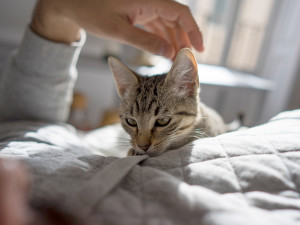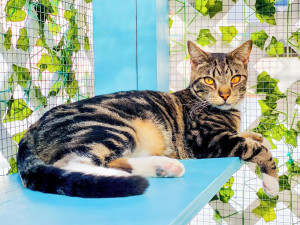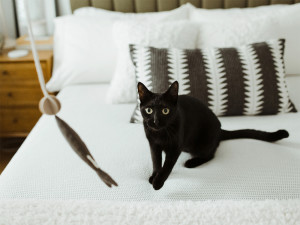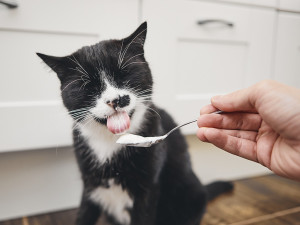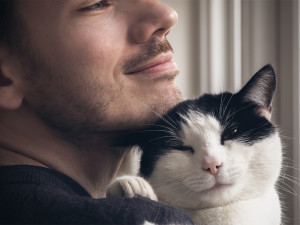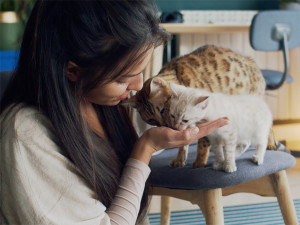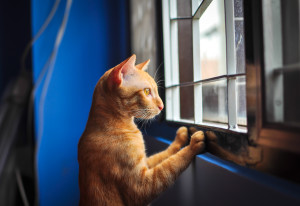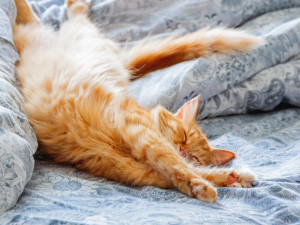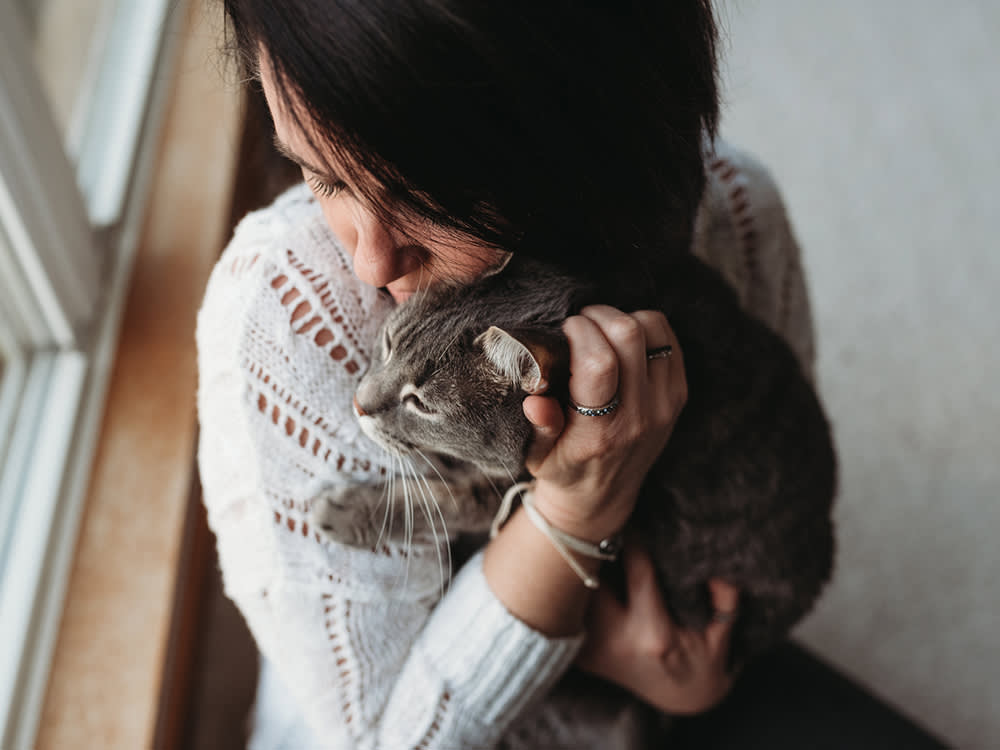
Share Article
Your Instagram feed went from #summervibes to #downwithwinter with the switch of the clock. Now that the sun sets before your work day ends, all you want to do when you get home is crawl under the covers, consume carbs, and binge all the shows slowly coming back after most of Hollywood’s creatives were on strike — and your cat is right there with you. You’ve probably asked the question “Why do cats sleep so much?opens in a new tab” and they may be asking the same of you in the winter.
For humans, the arrival of winter can trigger a type of depression known as seasonal affective disorder (SAD). SAD causes symptoms like low mood, lack of energy, trouble sleeping, irritability, and changes in appetite that are linked to colder temperatures and lack of sunlight. There is a lot of documented data about SAD in humans, but veterinary behaviorist Dr. Leanne Lilly believes cats can experience seasonal depression, too.

Get (totally free) deals for food, treats, accessories, tech, and way more pet parenting must-haves.
opens in a new tab“Is there a recognition of seasonal affective disorder in cats? No. But that doesn’t mean there aren’t cats experiencing it,” Dr. Lilly says. “There are [cats] who seem to have significant changes in their overall mental health, well-being, and behavior with seasonal changes.”
Not sure if your cat suffers from seasonal depression? Watch for these telltale signs: Dr. Lilly notes that depressed cats might sleep longer, lose their appetitesopens in a new tab, feel less interested in affection or interaction, or show signs of agitation like more “zoomiesopens in a new tab,” or general restlessness. If you recognize any of these changes, resist the temptation to play feline psychologist.
“Cats are notorious for hiding their illnesses [so] we want to rule out other possible causes of behavior changes,” Dr. Lilly says. “If we rule out illness and the behaviors go away when the season changes and then come back again next fall or winter, then we can feel more confident saying it’s seasonal affective disorder.”� Because there are no approved medications to treat seasonal depression, Dr. Lilly has four pro tips to help your cat overcome the winter blahs.
1. Let the sun shine in.
Shorter days (and less sunlight) are believed to trigger chemical changes in the brain, including declines in melatonin and serotonin, the hormones that regulate sleep and mood. Provide your cat with some light therapy by hanging a cat hammockopens in a new tab in the window or setting up a bed near a glass door, especially if there is a bird feeder outside, so your cat gets some mental stimulation.
Setting up a “catio”opens in a new tab or putting your cat in a harnessopens in a new tab and taking them out for a little vitamin D could also help boost their mood.
2. Prioritize playtime with your kitty.
Whether your cat responds to seasonal changes by sleeping more or feeling increasingly restless, exercise can help because it produces endorphins, the “feel good” hormones. Dr. Lilly suggests interactive cat toysopens in a new tab, games, and feeding puzzlesopens in a new tab that encourage your cat to burn some mental and physical energy.
“Increasing play sessionsopens in a new tab and making sure we’re interacting with them at least twice a day, as close to dawn and dusk [when sunlight levels are low] as possible, can help,” she says.
3. Change up their diet.
Just like polishing off a bag of chips isn’t a cure for your low mood, offering your cat more kitty carbohydrates won’t help them overcome seasonal affective disorder. Talk to your vet about whether switching up their diet or offering some mood-boosting, stress-relieving supplementsopens in a new tab might help.
Dr. Lilly points to probioticsopens in a new tab, which can balance gut bacteria and help alleviate anxiety, and special “calming” diets as options that might help reduce stress, depression, and anxiety in some cats.
4. Encourage your cat to socialize.
Depressed cats may want to spend more time solo, but socialization is key for improving their mood. To entice cats out from under the bed — literally — Dr. Lilly suggests placing heating pads around the house. “It gives cats alternate places that are actually socially interactive where they can stay warm without missing out on social interactions,” she explains.
Spending extra time with your cat — even if you’re both curled up under a blanket, staring at a screen — counts, too. If you are suffering from the winter blues, too, hanging out with your favorite feline may be a necessary mood booster for both of you.

Jodi Helmer
Jodi Helmer is a North Carolina-based freelance writer who shares her home with an embarrassing number of rescue dogs and relies on four feral cats to patrol the barn. When she isn’t refilling food and water dishes, Jodi writes about animals for Scientific American, Sierra, WebMD, AKC Family Dog, Living the Country Life, and Out Here.
Related articles
![Dog looking out a window in the winter]() opens in a new tab
opens in a new tabWinter Is Here—Can Your Dog Suffer Seasonal Depression?
Here’s why your pup may get the winter blues, too.
![cat snuggling man]() opens in a new tab
opens in a new tabWhat’s Your Cat’s Love Language?
Five surprising ways cats show affection (and how you can show it back), according to a cat behaviorist.
![kittens licking woman's hand]() opens in a new tab
opens in a new tabCurious Cat Behavior: Why Does My Cat Lick Me?
Hey, everybody’s got their thing.
![a Dalmation sits in a black chair]() opens in a new tab
opens in a new tabMerci Collective’s Crystal-Infused Products Are Calming Anxious Pets
Whether or not you believe in crystal healing, Chani Ronez’s chic, customizable, and sustainable products are designed to help treat everything from separation anxiety to joint pain to GI issues.
![orange cat looking out window]() opens in a new tab
opens in a new tabIs Your Cat’s Separation Anxiety Ruining Their Life and Yours?
Why your cat freaks out when you’re away (and how to help).
![Cat stretching on blue bedding]() opens in a new tab
opens in a new tab5 Calming Products for Cats
Because New Year’s Eve is never a silent night.

